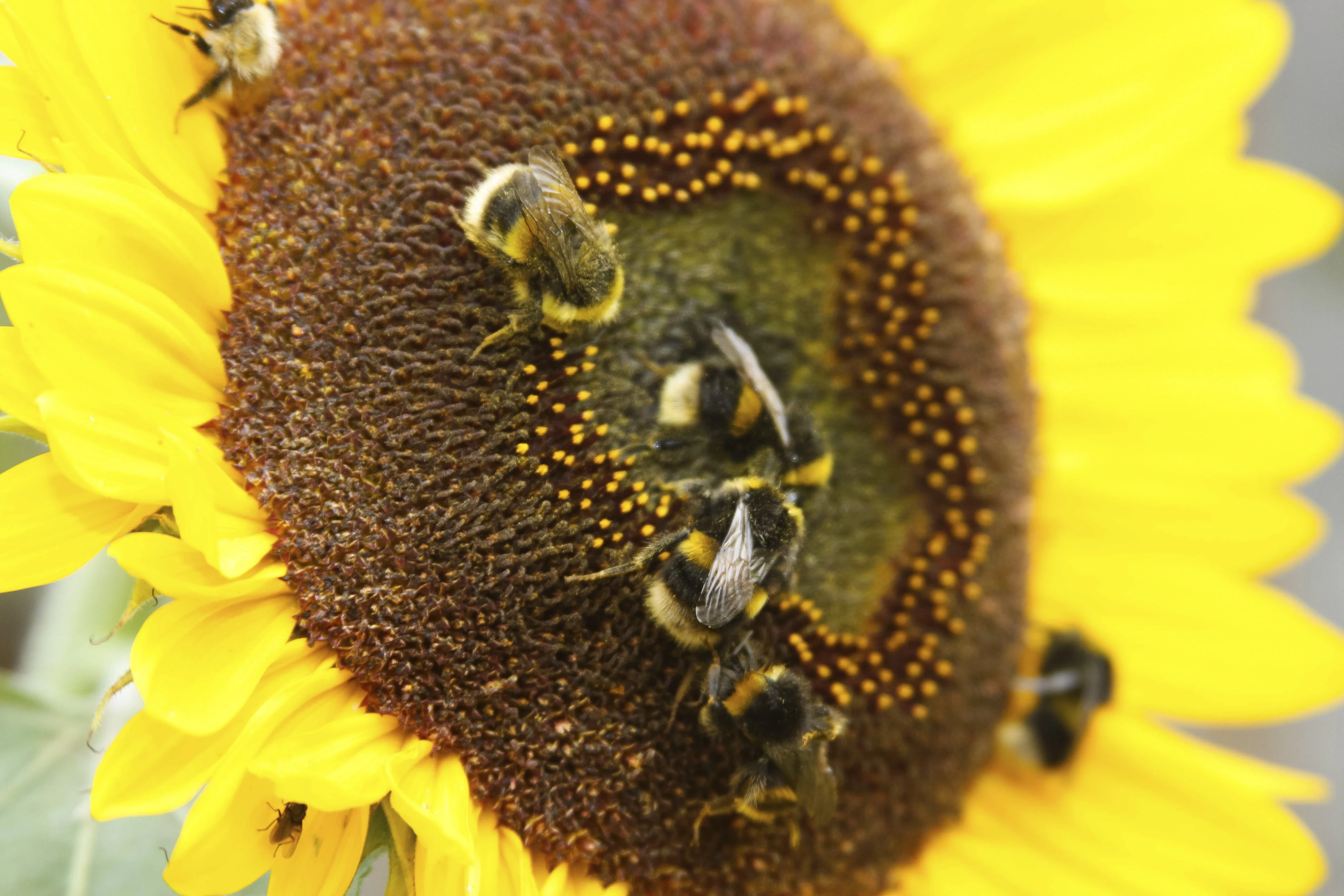
Partner Article
Dorset housebuilder and RSPB call for everyone to join the wildlife-planting revolution
Dorset housebuilder, Barratt Homes, and the RSPB are calling for local people to join the wildlife-planting revolution as a survey reveals three quarters of people are now doing at least something in their gardens to help wildlife.
The YouGov survey, commissioned by the RSPB and made possible by Barratt Developments, found that 30% of those asked were trying a fair amount to help their animal friends within their outside space, 19% were trying a lot, and 26% were trying a little.
What’s more, the wide range of ways that people are already gardening with wildlife in mind was highlighted. Over two in five of the people surveyed (43%) consider how a plant can benefit pollinators when choosing what to grow in their garden; just under a quarter (24%) leave areas of grass to grow long for nature; and nearly half of people feed birds (49%). With UK gardens and balconies covering over 4,000km2, twice the size of Greater London, all these actions put together create a vital network of refuges for wildlife*.
With many previously familiar garden species in decline, planting for wildlife in gardens and outdoor spaces presents a fantastic opportunity to help these struggling creatures.
Starling numbers have fallen by two-thirds in Britain since the mid-1970s, for example, with populations of half of our bumblebee species falling, and hedgehog numbers crashing from 30 million to an estimated one million since the 1950s across England, Wales, and Scotland.
When asked in the survey to choose what one thing they would most like to do in a new empty outdoor space, half of people (50%) chose having more plants, having a wildflower meadow (16%), planting fruit trees (11%), other kinds of trees (6%), shrubs (7%), or space for more flowers (10%).
And the potential for even more people to take up action and welcome wildlife into their gardens was also revealed. Two thirds of respondents want to see local birds (68%) and pollinators (64%) in their local space, two groups of species that are easily attracted by growing wildlife-friendly plants.
Adrian Thomas, the RSPB’s wildlife gardening expert, said: “I’m thrilled to hear how many people are now taking steps to help wildlife in their gardens and outdoor spaces. It feels like a movement is underway in which people are recognising that our gardens can be wonderful, shared spaces for us and for wildlife, to the benefit of all.
“To play your part, the best and easiest place to start is to grow more plants. They provide varied, healthy food sources, and offer shelter and nesting spots. And the lovely thing is that lots of plants that are good for wildlife are also beautiful, colourful and richly scented, making outdoor spaces more welcoming, relaxing, and interesting for all of us to enjoy.
“So why not give planting a go, maybe starting with some wildflower seeds? They produce beautiful flowers in just a few weeks, and you’ll be surprised at how quickly you see pollinators buzzing into your garden!”
Jon Green, Barratt Homes Managing Director, Southampton Division, said: “It’s great to see more and more people taking the plunge and prioritising wildlife in their gardens. This is one of the reasons why we work with the RSPB to give homeowners guidance on how best to do this. Such simple things as leaving grass long and installing bird feeders can make a big difference to local wildlife.”
And for anybody who wants to get started, here are five wildlife-friendly, easy-growing plants to include in your outside space:
Sunflowers – beautiful and easy to grow from seed, these classic flowers are great for pollinators and are a great food source for birds when they set seed.
Cornfield annuals – for just a couple of pounds you can have the glow of red poppies and blue cornflowers within weeks.
Mini-meadow – just let parts of your lawn grow for a few months, or even better until late summer, and be rewarded with drifts of clovers and other meadow flowers.
Lavender – this familiar lovely-smelling herb is brilliant for bees and butterflies.
Foxgloves – tall purple, pink and white flowers that are bee magnets.
The RSPB and Barratt Developments have been working together since 2014 to show how new homes can help nature and support wildlife. Their support has allowed the RSPB to breathe new life into its wildlife-friendly gardening work through the creation of Nature on Your Doorstep.
This was posted in Bdaily's Members' News section by Barratt Homes .
Enjoy the read? Get Bdaily delivered.
Sign up to receive our popular morning National email for free.








 Raising the bar to boost North East growth
Raising the bar to boost North East growth
 Navigating the messy middle of business growth
Navigating the messy middle of business growth
 We must make it easier to hire young people
We must make it easier to hire young people
 Why community-based care is key to NHS' future
Why community-based care is key to NHS' future
 Culture, confidence and creativity in the North East
Culture, confidence and creativity in the North East
 Putting in the groundwork to boost skills
Putting in the groundwork to boost skills
 £100,000 milestone drives forward STEM work
£100,000 milestone drives forward STEM work
 Restoring confidence for the economic road ahead
Restoring confidence for the economic road ahead
 Ready to scale? Buy-and-build offers opportunity
Ready to scale? Buy-and-build offers opportunity
 When will our regional economy grow?
When will our regional economy grow?
 Creating a thriving North East construction sector
Creating a thriving North East construction sector
 Why investors are still backing the North East
Why investors are still backing the North East